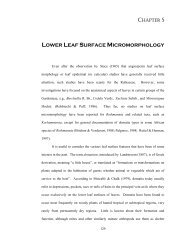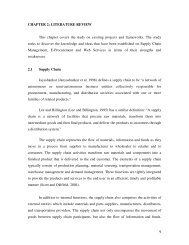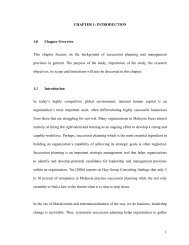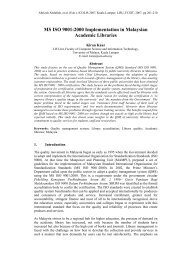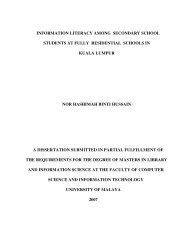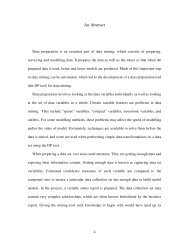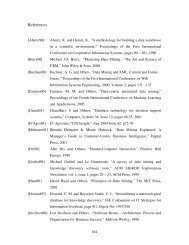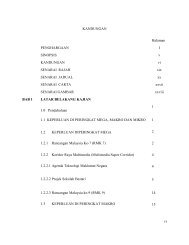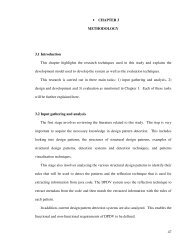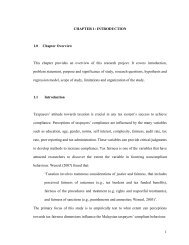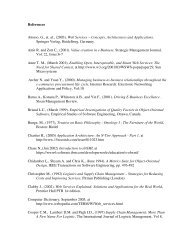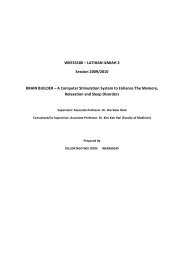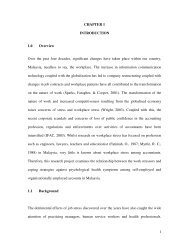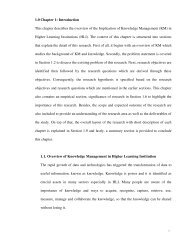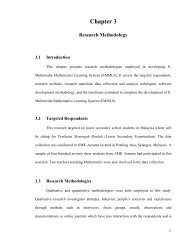CHAPTER 1 1.0 Introduction - DSpace@UM - University of Malaya
CHAPTER 1 1.0 Introduction - DSpace@UM - University of Malaya
CHAPTER 1 1.0 Introduction - DSpace@UM - University of Malaya
You also want an ePaper? Increase the reach of your titles
YUMPU automatically turns print PDFs into web optimized ePapers that Google loves.
2.0 <strong>Introduction</strong><br />
<strong>CHAPTER</strong> 2<br />
Literature Review<br />
It is interesting to note, there are three ways <strong>of</strong> spelling code-switching: code-<br />
switching codeswitching and code switching. This may be because, many scholars are<br />
involved in studying code-switching: linguists, pscycholinguists, sociolinguists,<br />
philosophers and even anthropologists. The researcher will spell it as code-switching.<br />
This chapter contains a review <strong>of</strong> previous studies <strong>of</strong> code-switching. The study <strong>of</strong><br />
code-switching has prompted considerable interest among linguists and sociolinguists<br />
since the year 1972; they have made studies on linguistics from sociolinguistic and<br />
psycholinguistic point <strong>of</strong> view. Linguistics is concerned with the structure <strong>of</strong><br />
languages used in code switched discourse. The sociolinguists study how socio-<br />
cultural factors affect language functions. Psycholinguists study how the subconscious<br />
mind influences code-switching; the mind acts impulsively and the conscious mind is<br />
not aware <strong>of</strong> it.<br />
Linguists have made numerous indepth studies on code-switching in Malaysia and the<br />
rest <strong>of</strong> the English speaking world: English-Tamil, English-Tagalog, English-<br />
Taiwanese and English-Spanish. The linguists provide important and interesting<br />
findings even if they differ in their views. However, the linguists still need to do<br />
further research to find out why code-switching takes place in formal and informal<br />
situations to formulate a universal theory.<br />
21



